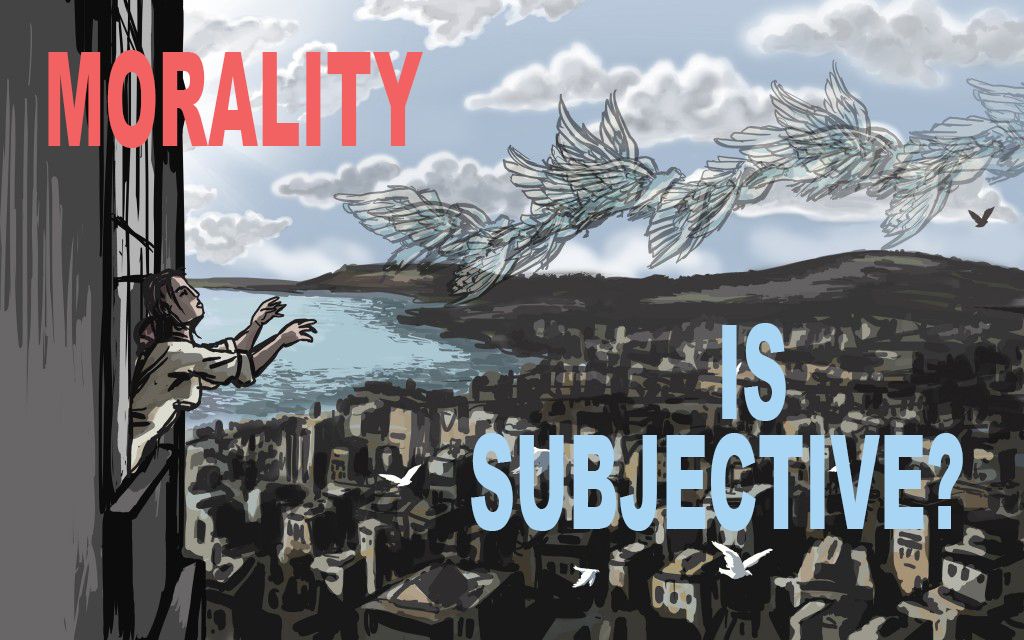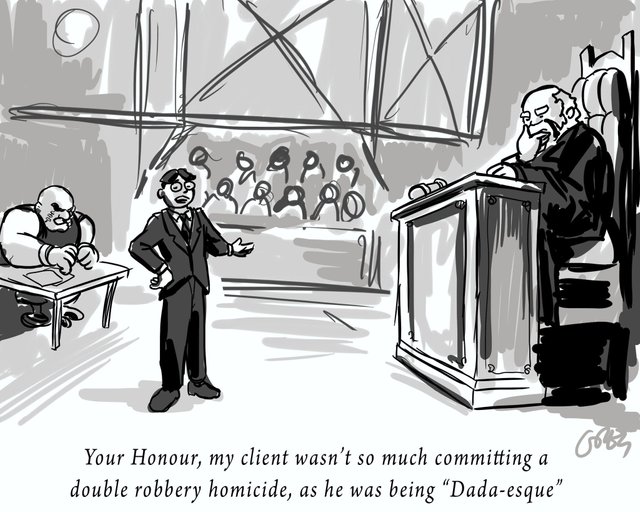Is Morality Subjective?

Recently Styxhexxenhammer666 made a video in which he spoke about the echo chamber effect of the left these days. All in all there was nothing I disagreed with as far as his criticisms of various groups went, but there was one statement that he sort of slipped in near the beginning, that to my knowledge, has not been addressed by anyone so far.
"The far left in this country has crappy ideas. These ideas will not work. They are bad, on an objective political historical standard anyway, not so much a moral standard because that's always subjective. That's true. You can claim objectivity all you want but that claim itself remains subjective which is the funny part. Most people don't recognize this."
While it is uncertain whether Styx is saying morality itself is always subjective, or that people's perceptions of morality always are, I don't think it really matters - his claim renders morality effectively subjective. And it would be foolish to succumb to the temptation of pointing out that he himself made an absolute statement, since he also made the point that politics and history can be objective. Therefore he was making an absolute statement about morality and/or it's perception, while criticizing the making of absolute moral statements themselves.
Having viewed a few of Styx's videos I can see that his views are sympathetic to the concept of personal liberty. Would it be too much for me to assume that he also ascribes to the principle of the sovereign individual? In any case, I think it would be useful to ask the following three questions in response his particular statement that I highlighted above, to be answered by whomever may wish to do so.
Is it true that all individuals are sovereign beings?
If so, is it also then true that is it wrong to violate the sovereignty of an individual?
And if that is true, would that not be a moral absolute?
What I want to make clear here is that I am not trying to get up on any moral high horse. I am far from being the most moral person around. And I also am aware that the term sovereign can mean different things to different people (more on the reality of people being subjective versus the viability of subjectivity later in this essay). The most basic way to understand the term is simply that of self ownership, a concept best reflected in the principle of negative rights.
I think what Styx may be reacting to is a phenomenon I refer to as Subjective Absolutism. If you examine the type of Moral Panics that have occurred throughout History, it is rather obvious that they have an extremely subjective aspect to them, and yet they will also take on the conditions of Dogmatic Absolutism. It can be very easy then to decide that this is evidence of all morality to be effectively subjective. However this is an assumption, and it's viability as an argument lasts only as long as the moral panic itself. Otherwise all concepts of morality would disappear along with the subsiding of a moral panic, at least those related to the panic. This applies to any condition in which subjective views of morality are exercised. The conditions change, and so the distorted perception realigns itself, but do none of the core values remain?
What I am saying is that there is an equal risk from looking into an echo chamber as there is to being inside of one, in that you may draw external conclusions that are not entirely consistent with what is really going on in the rest of the world. Examples, no matter how large scale, of people being subjective do not mean that "subjectivity as absolute" is a viable concept. It was the Post Modernists who made the point of seeing through the lens of absolute subjectivity, thus justifying all statements and actions as a licence to "appeal" over truth, which has led to the current condition of the left, along with all of it's requisite moral panics.

To be fair, Styx does not go in this direction entirely, drawing the line for objectivity between morality and other conditions. He defines moral subjectivity as absolute, but I think that observation has no more viability than the Post Modernist view. I'm also surprised that I've made it this far through my own essay before using the term Moral Relativism!
We all see things subjectively at the outset, and to try to move from this to a more objective viewpoint is a struggle for anyone who tries it. What it comes down is WHY should someone struggle to align their perceptions with truth. To determine this one has to decide whether it is a moral choice to see things as they are, or if such a choice is just a personal quirk of appeal.
All images and writing for this article are by me. Originally posted on my Minds.com profile. To view more of my work visit my website, fireawaymarmot.com.
@OriginalWorks
The @OriginalWorks bot has determined this post by @fireawaymarmot to be original material and upvoted(1.5%) it!
To call @OriginalWorks, simply reply to any post with @originalworks or !originalworks in your message!